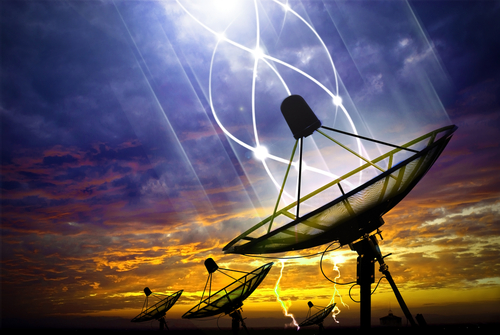Cable Technology Feature Article
FCC Lifts Ban on Cable Companies Encrypting Basic TV Service
 By Ed Silverstein, TMCnet Contributor
By Ed Silverstein, TMCnet Contributor
The FCC (News - Alert) recently approved letting cable companies encrypt TV signals for basic service – a move backed by industry representatives.
It is seen as a way that can block the theft of service by viewers who don’t pay, but illegally watch basic cable TV channels.
In 2004, the National Cable & Telecommunications Association said that some five percent of residences located near cable lines stole service without paying. That led to about $5 billion in lost revenue for the cable industry, according to Bloomberg Businessweek.

Image via Shutterstock
Cable TV companies already used encryption to prevent theft of their expensive packages.
“By permitting cable operators to join their competitors in encrypting the basic service tier, the Commission has adopted a sensible, pro-consumer approach that will reduce overall in-home service calls and accelerate cable operators’ transition to all-digital networks,” according to a statement by National Cable & Telecommunications Association president and CEO, Michael Powell. “Encryption of the basic tier also enhances security of the network which reduces service theft that harms honest customers. We commend the FCC for updating its rules to promote these consumer and competitive benefits.”
Disconnection of service can now be done remotely. That makes it more convenient for subscribers and more economical for providers.
With the lifting of the ban, there are some inconveniences for a limited number of viewers. Consumers who paid for cable TV, but have sets connected to cable without set-top boxes, will need to get boxes. The FCC was aware of the needs of these consumers when making its decision.
“We recognize that this rule change will adversely affect a small number of cable subscribers who currently view the digital basic service tier without using a set-top box or other equipment,” the FCC said in its decision. “If a cable operator decides to encrypt the digital basic tier, then these subscribers will need equipment to continue viewing the channels on this tier. To give those consumers time to resolve the incompatibility between consumer electronics equipment (such as digital television sets) and newly encrypted cable service, we require operators of cable systems that choose to encrypt the basic service tier to comply with certain consumer protection measures for a period of time.”
In commenting on the FCC decision, Commissioner Robert M. McDowell, said “At long last, we provide cable operators with the freedom to encrypt their basic service tier offering. Encryption will allow cable operators to activate and deactivate cable service remotely to better serve their customers. This newly-allowed ability will also prevent theft of service while evening the regulatory playing field with satellite providers that have not been subject to this rule.”
“Today is a good day for consumers and for innovation in the video market,” added FCC Chairman Julius Genachowski (News - Alert) in his statement. “The Commission removes regulatory barriers that prevented cable companies from remotely activating service and forced consumers to wait for the cable guy to show up at their homes. At the same time, we ensure that encrypting cable signals won’t limit consumers from using an ever-growing number of Internet-connected, third-party video devices, and keep barriers low for video device innovators. We make clear that cable companies can only encrypt their signals so long as these important pro-consumer, pro-innovation protections remain in place—to decouple the two components of the Order would shortchange consumers and innovators.”
Cablevision Systems (News ![]() - Alert) Corp., which provides service the metro New York region, already encrypts signals because it previously got a waiver from the FCC. Cablevision’s positive experience with the waiver – led the FCC to approve lifting the ban for other companies.
- Alert) Corp., which provides service the metro New York region, already encrypts signals because it previously got a waiver from the FCC. Cablevision’s positive experience with the waiver – led the FCC to approve lifting the ban for other companies.
In addition, DirecTV and Dish Network Corp., both satellite TV providers, already encrypt their TV signals. TV provided by AT&T (News ![]() - Alert) and Verizon Communications were not subject to the earlier ban.
- Alert) and Verizon Communications were not subject to the earlier ban.
Edited by Brooke Neuman



